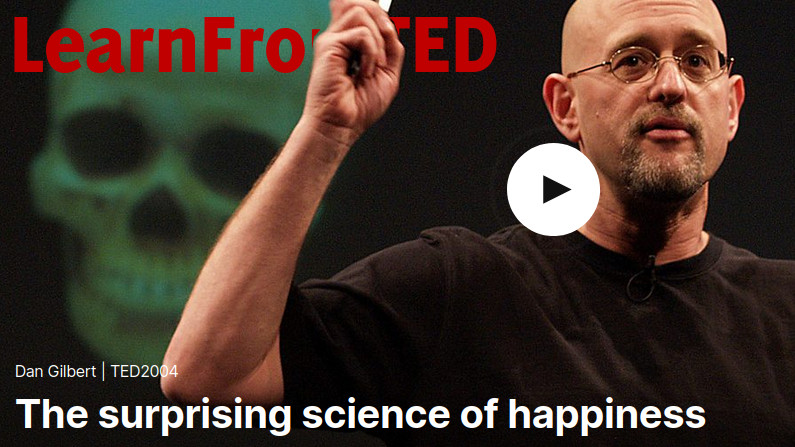Once again #LearnFromTED offers us a scientific presentation, humour and some ideas for learning to speak in public thanks to Dan Gilbert.
Here is the TED talk that you can watch first or follow along with my comment:
The opening already contains a quip. Humour always helps, I have said it many times, and the best is contextual just like Dan does. He is a psychologist, not an entertainer, his exposure is therefore serious, making the audience laugh does not affect his credibility, on the contrary, it makes you want to listen to him. The following part aptly represents what the whole speech will be like: fast, smooth and full of information, presented in a way that everyone can digest.
Shortly after the start of the second minute comes a question that seems so rhetorical, it is there to sharpen the attention of the audience. The following answer is the one the audience expects, except that it is not true! Double surprise. This is a trick you can make your own. If you can prove to them that what they think they know is not true, or try something counter-intuitive, they are more likely to want to hear from you. Ask them what 7 + 12 is, and show them that it is 21 and not 19! But be careful, if you tell them that he is 21 and it’s not true, you get the opposite effect: loss of credibility.
This fascinating game of surprises continues very well towards the fourth minute, reinforced by the use of rhetorical devices:
Like Sir Thomas, you have this machine. Unlike Sir Thomas, you seem not to know it.
The next three examples of synthethized happiness are equally valid. Note how it starts from the statements of people who at first are unknown. Here too Dan Gilbert builds on surprise, with the inevitable humour at the end: the 4 rules for being happy!
It is clear to everyone that never joining the Beatles cannot be a rule of happiness, but at that point we want to know what leads these people to talk like that. Or maybe we are interested in knowing how we too can synthesize our own happiness. In any case, the whole audience at that moment, and I guess you too, want to know how the story goes. I remind you: it is based on scientific studies. As he himself reminds us a little later.
Now, I’m a scientist, so I’m going to do this not with rhetoric, but by marinating you in a little bit of data.
Dan Gilbert’s final advice is to live more peacefully and not to overestimate successes and failures.
My final tip is learn from Dan how to make an effective and engaging presentation by pairing solid science with the surprise factor and healthy humour.


Recent Comments